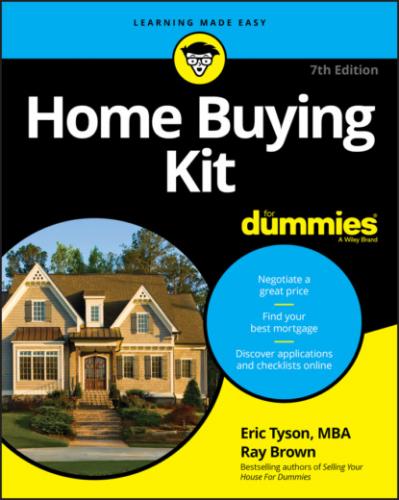Where to Go from Here
Odds are you’re not quite ready to bolt over to the nearest bank and take out a mortgage — and we don’t suggest that you blindly call the first Realtor you find online. It’s up to you where you go from here, but if you’re just beginning to think about buying your first home, we recommend that you read this book straight through, cover to cover, to maximize your home-buying savvy. But the A-to-Z approach isn’t necessary — if you feel pretty confident in your knowledge of certain areas, pick other ones that you’re most interested in by either skimming this book’s table of contents or by relying on the well-crafted index at the back of the book.
Part 1
Getting Started with Buying a Home
IN THIS PART …
Compare the pros and cons as well as the economics of renting versus buying and owning your own home.
Get your personal finances in order before buying.
Determine how much you can afford to spend on a home.
Understand the drivers of home prices in your local market.
Chapter 1
Deciding Whether to Buy
IN THIS CHAPTER
Every month, week, and day, we buy things large and small: lunch, a new pair of shoes, and every now and then, a car.
Most people buy things without doing much comparison shopping, but instead draw upon their past experiences. When the counter help at the nearby coffeehouse is friendly and you like the brew, you go back for more.
Sometimes purchases lead you by association to related purchases. You get a pet cat or dog, for instance, and buying a collar and pet toys may naturally follow. By the same token, you buy a home, and before long you have a new sofa and dining table.
You end up being really happy with some items you purchase. Others fall short of your expectations … or worse. When the items in question don’t cost you much, it’s no big deal. Perhaps you return them or simply don’t buy more in the future. But when it comes to buying a home, that kind of sloppy shopping can lead to financial and emotional disaster.
If you’re not willing to invest time, and if you don’t work with and heed the advice of the best people, you can end up overpaying for a home you hate. Our goals in this book are simple: to ensure that you’re happy with the home you buy, that you get the best deal you can, and that owning the home helps you accomplish your financial goals.
Weighing the Advantages of Owning versus Renting
Nearly everyone seems to have an opinion about buying a home. People in the real estate business — including agents, lenders, property inspectors, and other related people — endorse homeownership. Of course, why wouldn’t they? Their livelihoods depend upon it! Therein lies one fundamental problem of nearly all home-buying books written by people who have a vested interest in convincing their readers to buy a home.
Consider the case of Peter, who thought that owning a home was the best financial move he could make. What with tax write-offs and living in a place while it made money for him, he thought how could he lose? Peter envied his colleagues at work who’d seemingly made piles of money with property they bought years ago. Peter was a busy man and didn’t have time to research other ways to invest his money.
Unfortunately, Peter bought a place that stretched his budget and required lots of attention and maintenance. Adding insult to injury, Peter went to graduate school clear across the country (something he knew he was likely to do at the time he bought) three years after he purchased. During these three years of his ownership, home prices dropped 10 percent in Peter’s
